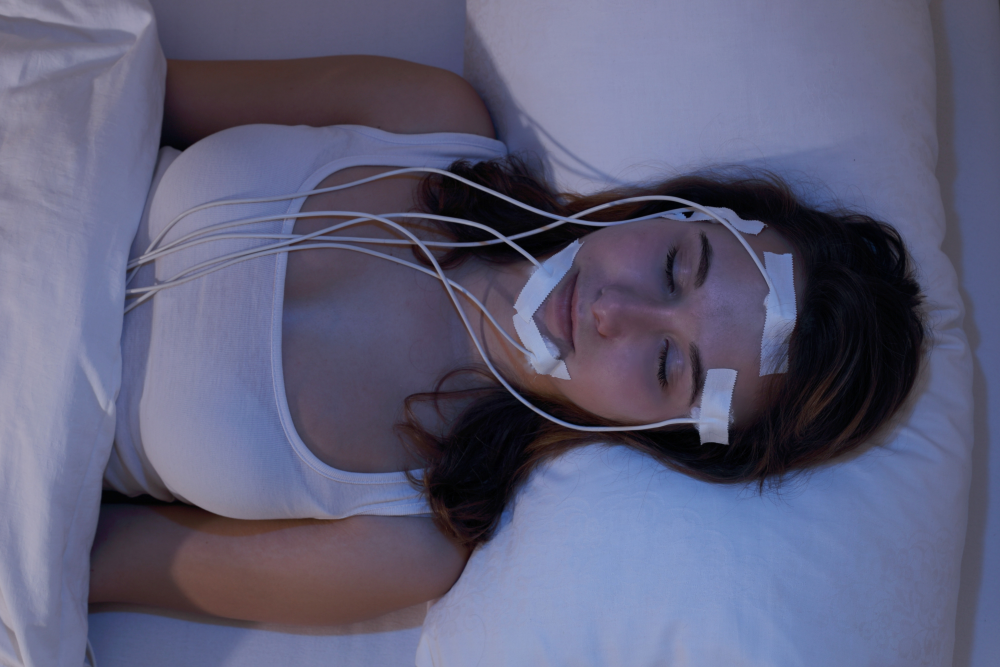Sleep is an essential part of our daily routine. Quality sleep might also be a critical factor in maintaining good health. However, many people suffer from sleep disorders that can lead to serious health problems. A sleep study is a diagnostic test that can help identify the cause of sleep disorders and prevent the development of diseases.
What is a sleep study?
A sleep study, also known as a polysomnography, is a non-invasive test that measures various physiological parameters during sleep. The test is usually conducted in a sleep laboratory, where you spend the night hooked up to various sensors that monitor brain waves, heart rate, breathing, and other vital signs.
During the test, you are observed by a sleep technician who records any abnormal behavior or movements. The data collected during the study is then analyzed by a sleep specialist who can diagnose any sleep disorders and recommend appropriate treatment.
Why are sleep studies important?
Sleep studies are important for disease prevention because they can identify underlying health problems that may be causing sleep disturbances. For example, sleep apnea is a common sleep disorder that is characterized by pauses in breathing during sleep. This condition can lead to high blood pressure, heart disease, and stroke if left untreated.
Other sleep disorders, such as insomnia and restless leg syndrome, can also have negative effects on health and quality of life. By identifying these conditions early on, patients can receive appropriate treatment and prevent the development of more serious health problems.
In addition to diagnosing sleep disorders, sleep studies can also help identify lifestyle factors that may be contributing to poor sleep quality. For example, excessive caffeine intake, alcohol consumption, and smoking can all disrupt sleep and lead to health problems.
Overall, sleep studies are an important tool for disease prevention and can help individuals maintain good health and quality of life. If you are experiencing sleep disturbances or have concerns about your sleep quality, talk to your healthcare provider about the possibility of undergoing a sleep study.
Other articles you might like:
Health Benefits of Broccoli Sprouts
Broccoli Sprouts Broccoli sprouts may be small in size, but they pack a powerful punch when it comes to health benefits. These tiny sprouts are loaded with nutrients and antioxidants that can help protect against a range of health issues, from cancer to heart disease....
Review of Trekking Poles
Best Trekking Poles for Fitness Walking Trekking poles are an excellent way to take your leisure walk into a fitness walk. More than that, walking poles can give more stability on uneven terrain, add an arm workout, and enable some to walk at a faster pace. But not...
Is Reverse Osmosis Water Filtration Better For You?
Water is essential for life, but not all water is created equal. Tap water can contain harmful contaminants and chemicals that can have adverse effects on our health. This is where reverse osmosis water purification comes in. Reverse osmosis (RO) is a highly effective...
Turn your daily walk into a fitness walk
Ways to get a workout out of your daily walk Daily walks have grown in popularity over the last few years. And for good reason. They are a great way to get sunlight, clear your mind, and breathe in some fresh air. Incorporating walks into your day is also a great way...
Health Benefits of Omega 3 Fatty Acids
Health Benefits of Omega-3 Fatty Acids and Recommended Foods Omega-3 fatty acids are an integral part of cell membrane phospholipids. They provide structure, act as a barrier to protect cells from environmental aggression, and influence various bodily functions to...
Health Benefits of Daily Sunlight
Health Benefits of Daily Sunlight There are two sides to every coin—and two stories to tell about sunlight. Skincare enthusiasts and specialists, it seems, have taken a definitive stand against the sun, branding it as a villain that causes premature aging and leads to...
Increase Physical Activity with Exercise Snack
Physical activity could be the single most important lifestyle habit. In fact, it may help cope with the symptoms of a chronic condition and improve overall health. The CDC recommends 150-300 min of moderate-intensity activity per week. But fitting exercise into a...
Benefits and Harms of Dietary Fat
Fat is one of three macronutrients found in food that is essential for cell survival in humans. However, it is often demonized as being “unhealthy”. But that couldn’t be further from the truth. Some fats have been linked to improved cognition and decreasing the risk...
Protein Improves Brain Health
Studies have shown that diets high in animal protein may help to prevent neurological conditions such as Alzheimer's disease and Parkinson's disease. Furthermore, there is a growing body of evidence that animal protein might be the key that unlocks the door to health...
Protein: Essential to brain health and repair
Protein, often referred to as the “building blocks of life” is arguably the most critical macronutrient for brain health and repair and disease prevention as we age. One of three macronutrients found in food the body is primarily composed of protein (second only to...











